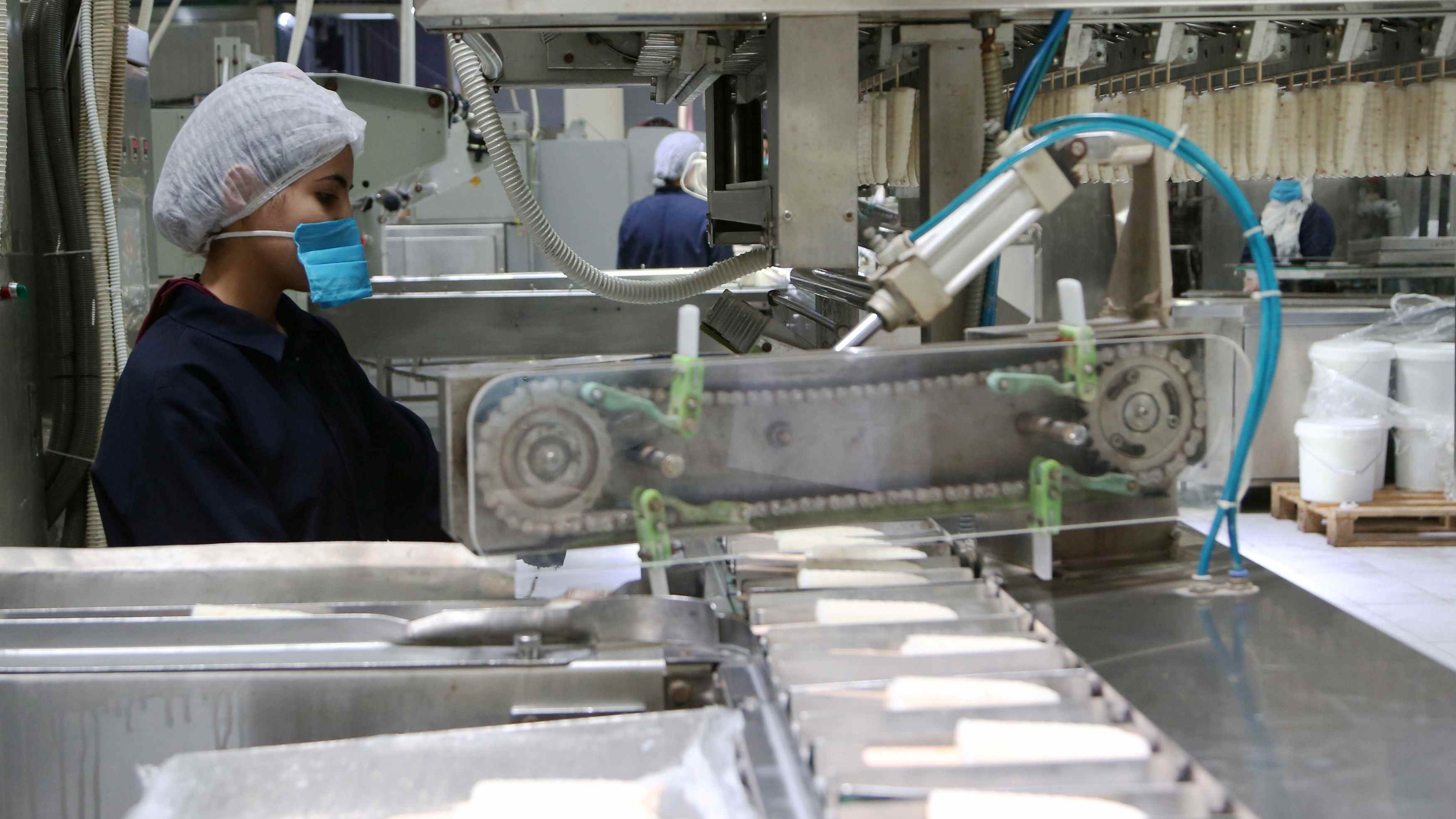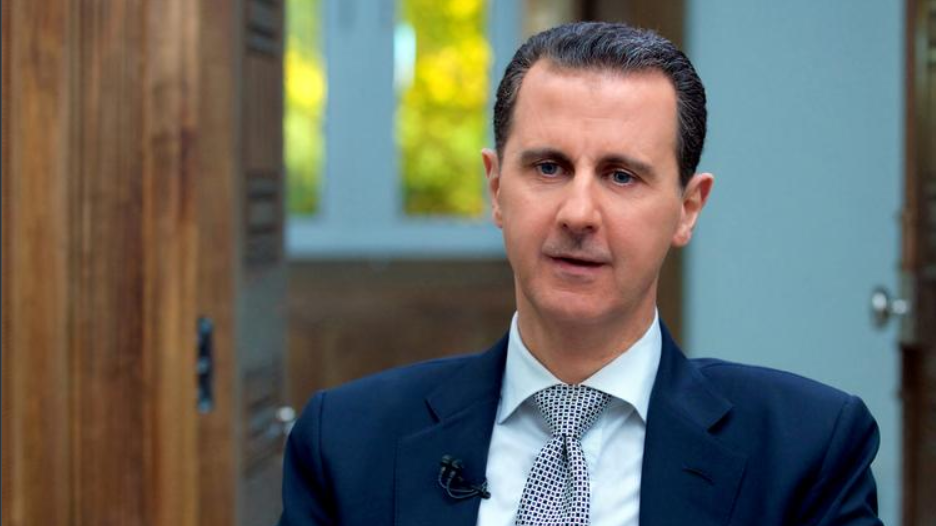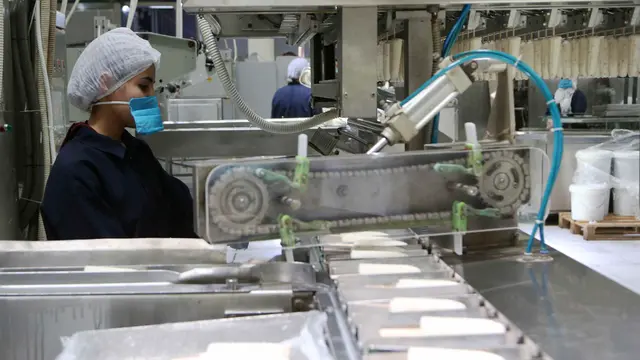
A worker wearing a face mask monitors a machine inside an ice cream factory in Damascus, Syria, July 2, 2020. /Reuters
The Syrian government has finished preparations for the parliamentary elections due on Sunday as voters are hoping for a change that could resolve the economic hardships in the country.
Over 7,400 polling centers have been prepared across the country for the elections where 1,658 candidates are running for the 250-seat parliament, according to the state news agency SANA.
It's worth noting that the Syrian government is now in control of around 70 percent of the Syrian territory with ultra-radical rebels in control of the Idlib Province in northwestern Syria and the U.S.-backed Kurdish militia of the Syrian Democratic Forces (SDF) controls areas in northeastern Syria.
Luqman Ahma, the spokesman of the self-declared Kurdish administration in northern and northeastern Syria, said in a press conference Saturday that there will be no polling centers in areas controlled by the Kurdish groups, adding that the Kurdish administration has nothing to do with the parliamentarian elections.
Meanwhile, the streets in Damascus are filled with posters of the candidates, many of whom are already members of the parliament and ran for the elections four years ago.
The new thing this year is the number of young candidates that haven't been noticed in the previous elections. Still, the footprint of the ruling al-Baath party is expected to be obvious in this election like in the previous ones as more than half of the candidates are members of the al-Baath party.

File photo of Syrian President Bashar al-Assad /Reuters
According to the law, after the parliamentarian elections, President Bashar al-Assad will name a new prime minister and ask him to form a new government.
However, the elections this year come amid a harsh economic situation with tightened sanctions and an unprecedented slide in the value of the Syrian pound against major currencies.
The prices of all materials have more than doubled in recent weeks and people are discontent with the new situation.
The economic situation has started a free fall when the border of the country with Lebanon closed as a result of the measures taken by the Syrian government against the spread of the COVID-19.
Later on, the U.S. imposed a new set of sanctions under the so-called Caesar Syria Civilian Protection Act, which is a United States legislation that sanctions the Syrian government, including Syrian President Bashar al-Assad for alleged war crimes against the Syrian population.
People on the streets have been divided between those who don't believe a new parliament will resolve any crisis and others who hoped the new lawmakers can pass laws to soften the sharpness of the economic crisis in the country.
"I hope the new parliament can pass laws to make our lives better I still believe they can do something because they are supposed to represent us and voice our worries and crisis," Rula Youssef, a lawyer, told Xinhua.
For his side, Roushdi Ali, a university economics student, a capable parliament and a new government can find solutions and alternatives to ease the difficulties of the sanctions and economic crisis.
"We have a lot of capabilities in our country and we can achieve self-reliance and overcome the crisis but we need capable people who have a clear agenda about making the country better," he said.
The Syrian state-run media outlets have made several campaigns urging people to take to the polling centers and cast their ballots under several slogans such as "Your Voice is Your Rights."
Source(s): Xinhua News Agency
 简体中文
简体中文

